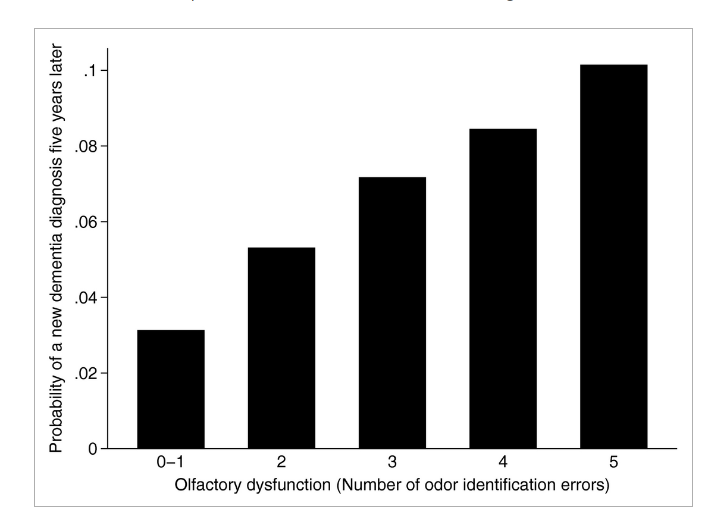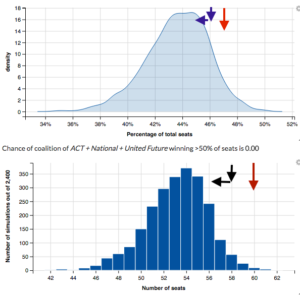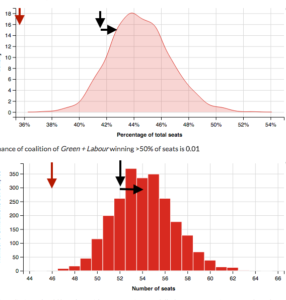Simple and ineffective
Q: Did you see there’s a new test to predict dementia?
Q: Yes, the Herald says it “would allow drugs and lifestyle changes, such as a healthy diet and more exercise, to be more effective before the devastating condition takes hold.”
A: That would make more sense if there were drugs and lifestyle changes that actually worked to stop the disease process.
Q: At least it’s a simple one and accurate test. It’s just based on your sense of smell.
A: <dubious noises>
Q: But “almost all the participants, aged 57 to 85, who were unable to name a single scent had been diagnosed with dementia. And nearly 80 per cent of those who provided just one or two correct answers also had it, ”
A: That’ s not what the research says
Q: It’s what the story says.
A: Yes. Yes, it is.
Q: Ok, what does the research say? It’s behind a paywall
Q: That matches the story, doesn’t it?
A: Check the axis labels.
Q: Oh. 8% and 10%? But couldn’t the labels just be wrong?
A: Rather than the Daily Mail? It’s possible, but the research paper also says “9% positive predictive value”, meaning that only 9% of those who are predicted to get dementia actually do, and that matches the graph.
Q: Um
A: And there’s a commentary in the same issue of the journal, headlined Screening Is Not Benign and saying “No test with such a low [positive predictive value] would be taken seriously as a way to identify any disease in a population”
Q: But it’s still a big difference, isn’t it.
A: Yes, and it’s scientifically interesting that the nerves or brain cells related to smell seem to be damaged relatively early in the disease, but it’s not a predictive test.
[Update: the source for the error seems to be the University of Chicago press release.]
[Update: It’s on Stuff, too]


